Is paying for branded search terms still worth it? The answer is yes.
One of the most common objections to bidding on branded keywords (your brand's name, just to be clear) is that if you already have the top organic search result spot secured for your brand, it's just wasting money to have another link on top of that search result that leads to the same page.
But let's put that theory to the test with a quick scenario.
Imagine a potential customer hearing about your brand, say, from a podcast mention, LinkedIn post, or glowing recommendation in a Slack community. They're intrigued, open a new browser tab, and Google your company name.
But instead of seeing only your site front and center, they're greeted with a paid ad from a competitor, cleverly titled, subtly suggesting they're the better choice. Your organic result is still there, yes… but it's below their flashy, well-targeted ad. Maybe they click it. Maybe they never even reach your website.
Sound frustrating? That's the reality in today's search environment. With AI Overviews, Zero-Click results, and other SERP features increasingly dominating the top of the page, your organic listing alone won't always protect your brand presence.
Branded keyword campaigns, in this respect, are no longer optional—they're strategic armour. Bidding on your own name might feel redundant, but in practice, it ensures you control the conversation, guide users to the right pages, and prevent costly leakage to competitors.
In this guide, we'll break down the difference between branded and non-branded keywords, when to use each, and why branded keywords are one of the smartest (and most cost-effective) investments you can make in your SEO and PPC strategy.
What is a Branded Keyword: Branded Keywords vs. Non-Branded Keywords

Branded keywords typically indicate high intent, meaning users are already familiar with your brand and are likely deeper in the purchasing process. They know your company or product name, suggesting they've done previous research or have received recommendations. As such, these searches often reflect a readiness to purchase, specific queries about products or services, or a desire to reconnect with a brand they trust.
Non-branded keywords, by contrast, reflect exploratory or informational intent. Users leveraging non-branded searches are generally in the earlier stages of the buyer's journey, either just beginning to explore potential solutions or comparing different options. These users may not yet be aware of your brand but are actively seeking information, product comparisons, reviews, or guidance to help solve their specific problem. In this way, non-branded keywords offer a valuable opportunity for businesses to establish authority, educate potential customers, and nurture leads toward buying.
Comparison of Branded vs. Non-Branded Keywords in Terms of Search Intent
Non-branded keywords are powerful for content marketing, while branded keywords excel in paid search and conversion-focused landing pages.
|
Branded Keywords |
Non-Branded Keywords |
|
|
Search Intent |
High (navigational or transactional) |
Low to mid (informational to consideration) |
|
Conversion Potential |
Higher—often bottom-of-funnel |
Lower—but excellent for discovery |
|
Competition |
Lower (for your own brand) |
Higher (more general and competitive) |
|
Audience Awareness |
Already familiar with your brand |
Unaware or early in the buyer journey |
|
SEO Strategy Role |
Defend and convert |
Attract and educate |
Branded Keywords = Revenue Readiness
The users who are using your branded keywords in their searches are already sold on something about your brand—your product, your reputation, your unique positioning. That makes branded searches extremely efficient for paid ads, retargeting, and direct-response campaigns. You're not convincing them why, you're just showing them how to take the next step. In other words, branded keywords are about closing the deal.
Non-Branded Keywords = Opportunity Creation
This is where the magic of content marketing lives. These keywords are how you attract users before they know they need you. When someone searches "best CRM for real estate agents," they may not know your product exists—but with the right content, you can become their top choice. In other words, non-branded keywords are about planting the seed.
They Work Best Together
Branded and non-branded strategies shouldn't be siloed. Your non-branded content brings in top-of-funnel traffic and educates them, while your branded assets convert that awareness into action. One feeds the other.
For example:
- A user finds your blog post via a non-branded keyword.
- They sign up for your newsletter or download a lead magnet.
- A week later, they Google your company name to check out your pricing.
- Your branded keyword ad or organic listing brings them back—and this time, they convert.
When to Use Branded vs. Non-Branded Keywords
Use branded keywords when:
- You're running retargeting campaigns
- You want to protect your brand in search results
- You're focused on conversions, product launches, or brand-specific promotions
Use non-branded keywords when:
- You want to reach new audiences who don't yet know your brand
- You're aiming to build topical authority or organic traffic
- You're creating educational content to guide users into the funnel
Benefits of Using Branded Keywords

If you're not actively leveraging your branded keywords in search campaigns, you're likely leaving valuable clicks, conversions, and revenue on the table. Below are the major advantages of branded keyword campaigns, and why they deserve a central role in your SEO and PPC mix.
|
Benefit |
What It Means |
Why It Matters |
|
1. Low CPA |
Branded keywords have low competition and high Quality Scores, leading to cheaper clicks. |
Lower cost-per-acquisition means better ROI, especially compared to expensive non-branded terms. |
|
2. Market Leader Positioning |
Branded ads help you dominate SERPs and control brand perception with tailored messaging. |
Reinforces authority and trust, especially helpful when users are evaluating competitors. |
|
3. Works with Organic Search |
Branded ads complement your organic listing, increasing visibility and reinforcing recognition. |
Builds brand recall and increases click-through rates with a stacked SERP presence. |
|
4. Drives Clicks |
Captures high-intent search traffic at the moment of action. |
Guides users to the right CTAs and landing pages instead of leaving it to chance. |
|
5. Improves Quality Score |
High CTRs and tight keyword-ad-page alignment lead to better Quality Scores. |
Boosts ad performance while reducing CPC—saving budget for broader campaigns. |
|
6. Custom Messaging |
Real-time updates and ad extensions allow you to test offers and tailor messaging. |
Gives flexibility to promote seasonal campaigns or target specific audience segments. |
|
7. Landing Page Control |
Send users to hyper-specific, conversion-optimized landing pages. |
Reduces friction, increases conversions, and improves the post-click experience. |
1. Low CPA (Cost-Per-Acquisition)
Branded keywords are one of the most cost-effective ways to generate conversions. This is because there's obviously less competition for your branded terms (you're probably the only one bidding on them, so the cost is low) compared to non-branded terms that everyone in your industry is bidding on. Since you're the most relevant result for your own brand name, Google rewards you with higher Quality Scores and significantly lower CPCs, often as low as a few cents per click.
More importantly, the conversion rate tends to be much higher because people searching for your brand already trust you or are further along in their buyer journey. Compared to high-competition, non-branded terms (which can cost 10x more), branded keywords offer an unbeatable cost-efficiency sweet spot.
2. Position Your Business as a Market Leader
Your brand's visibility on Google is part of your online reputation. Showing up with a polished ad at the very top of the page (above even your organic listing) communicates authority, trust, and professionalism—especially to new customers who may be vetting your business. Even if your brand is still growing, owning the top spot signals confidence and industry leadership.
Just be sure to get creative with your messaging so that you're targeting different people at the right times. The nice thing about ad copy is that it will always show up the same way, while with organic search results, the meta description can't be guaranteed.
Here's an example:
This is an organic search result for HubSpot:

It positions the CRM well, but take a look at the sponsored ad:

As you can see, there's more options here with clickable buttons, and in the sponsored ad, HubSpot chose to focus on their latest feature—AI capabilities, which isn't mentioned in the organic search result.
3. Work Together With Organic Search
There's a misconception that branded search ads "steal" clicks from your organic results. The truth? They amplify them.
Our experience shows that the combination of organic + paid listings creates a compounding effect: users see multiple results from your brand, which increases trust and click-through likelihood. Ever heard of the Billboard Effect? It's a common result that hotels and other accommodation providers see when they list their property on an Online Travel Agency—places like Booking.com, Expedia, and more. The effect is that potential guests see their listing during their research on these large websites, and at a later time end up booking directly with the accommodation provider instead of using the OTA. Why? Because the OTA provides enhances brand awareness, where the guest remembers the business and decides to book with them directly instead of going back to the OTA. In many cases, the accommodation providers will take advantage of the billboard effect and offer special promotions or discounts to guests who book directly with them.
The same principle applies to branded search ads and organic ads: The more the user sees your company in search results, whether through a sponsored ad or organic listing, the more they're going to remember you when they're ready to buy.
4. Drive Clicks
When someone searches for your brand name, they're not casually browsing—they're intentionally seeking you out. That could mean they're ready to buy, want to explore your products, or simply need to access their account. These are high-intent users sitting at the very bottom of your funnel, and branded search ads allow you to capture that intent and guide the experience.
By running branded campaigns, you ensure that:
- You're the first thing users see, not a competitor's ad or a review site.
- Your most relevant CTAs are front and center, like "Start Free Trial," "Book a Demo," or "Talk to Sales."
- You're controlling the click path, sending people to the most strategic page instead of relying on Google's organic logic.
Even better, branded ads let you go beyond just directing people to your homepage. You can match branded queries to specific landing pages based on user intent. For example:
- "YourBrand pricing" takes them straight to your pricing page.
- "YourBrand features" sends them to a product comparison or demo video.
- "YourBrand podcast" promotes your latest episode or audio series.
You can also promote value-driven content assets like ebooks, whitepapers, or webinars, which are ideal for nurturing interest and growing your email list from warm branded traffic.
5. Improve Quality Score

Google Ads rewards relevance, and branded keywords are about as relevant as it gets. That's why branded campaigns often receive exceptionally high Quality Scores, which is one of the most important metrics for determining your ad visibility and CPC.
Here's why branded campaigns typically outperform:
- High CTRs: People searching for your brand are more likely to click your ad.
- Ad relevance: Your brand name appears in the ad, headline, and display URL.
- Landing page experience: If your landing page matches the branded search (and it should), Google rewards that with higher scores.
What does this all mean for your budget? It means you pay less per click, get better ad placement, and your ads are more likely to appear even with a modest budget. It also boosts your entire account's health—strong Quality Scores on branded campaigns can raise your overall performance metrics, benefiting non-branded campaigns too.
6. Custom Messaging
Organic listings are largely static and unpredictable. Even if you update your meta title and description, there's no guarantee Google will display them as written. With branded search ads, however, you're in full control of your message, and you can adapt it in real time.
That flexibility opens the door for powerful personalization and experimentation:
- Seasonal campaigns: Promote holiday sales, event registrations, or limited-time offers directly in the SERP.
- Audience-specific messaging: Speak differently to enterprise users vs. small business leads by customizing ad groups and copy.
- A/B testing: Quickly test different headlines, CTAs, or product positioning to see what drives the most engagement.
Plus, you can enhance your visibility with ad extensions, like:
- Sitelinks: Promote multiple product categories or resources
- Callouts: Highlight USPs like "Free Shipping" or "24/7 Support"
- Structured snippets: List features, plans, or services
All of this allows you to own more SERP real estate, push competitors further down the page, and turn branded searches into mini conversion funnels right inside Google.
7. Landing Page Control
One of the most underrated advantages of branded PPC is the ability to take users exactly where you want them to go. Organic search results rely on Google's algorithm to determine the "best" page to show, which isn't always your most optimized or conversion-ready page.
With branded campaigns, you can:
- Send traffic to custom landing pages aligned with specific offers or funnel stages.
- Route visitors to high-converting lead magnets, case studies, or product tours.
- Adjust your strategy dynamically based on behaviour or campaign performance.
This level of precision means you're not wasting valuable branded clicks on outdated blog posts or generic homepages. Instead, you're delivering personalized experiences that convert, whether the goal is a trial signup,a demo request, or a gated content download.
You also reduce friction by cutting down on extra clicks and navigation, especially on mobile. A branded ad that takes a user from query to action in one click creates a smoother, more satisfying experience and a stronger first impression.
Strategies for Branded Keywords

Whether you're defending your turf or making your brand the go-to in your niche, branded keywords are your best friend in both organic and paid search. But success isn't based on luck; it's the result of knowing how to make branded keywords work for your business. Here are some effective strategies:
Choose the Keywords You Want to Target
Start by identifying all branded variations people might use when searching for your company. This includes:
- Brand name alone (e.g., "Roketto")
- Brand + service (e.g., "Roketto SEO services")
- Brand + product (e.g., "Roketto HyperContent")
- Misspellings or alternate formats (e.g., "Rocketto," "Hello Roketto")
Use tools like Ahrefs or Google Search Console to see how people are already searching for your brand. And don't forget to check what autocomplete and related searches suggest on Google—that's user intent gold. Another interesting new tool to use to see what keywords people are using in searches is Reddit Answers. One LinkedIn user found that by using the Reddit answers tool, they were able to find out that potential customers were searching for terms like "traceable supply chain" and "direct trade", which were terms that they hadn't considered for his wife's business previously. This allowed them to shift their content strategy for better results.
Should I Bid on My Competitor's Branded Keywords?
Sometimes, the best defence is a good offence. Bidding on your competitor's branded terms can help you tap into an audience already in buying mode. But tread carefully—this strategy can backfire if not done strategically. Bidding on competitors' branded keywords isn't against Google's terms of service, but you can't impersonate your competitor, so most people recommend against using your competitor's name in your ad copy to prevent the algorithm from thinking that's what you're trying to do.
It's been a common argument for years between digital marketers as to whether bidding on competitors' branded keywords is a strategy that should be recommended, and the answer usually boils down to your specific business and your goals, as the pros and cons are weighed.
Do it if:
- You offer a strong competitive edge
- You're targeting comparison-based queries
- Your landing page adds real value
Avoid if:
- Your offer isn't relevant to their audience
- You can't afford a bidding war
- You plan to mention the competitor by name in ad copy (which is a no-go with Google Ads)
Include Internal Links
Your branded keyword strategy should include smart internal linking from both your content and core pages. Every time you mention your own name or a service (like "Roketto's website design services"), use it as an opportunity to guide readers deeper into your site.
- Link branded phrases to corresponding service pages
- Use keyword-rich anchor text (but keep it natural)
- Avoid overloading a page with too many branded links—quality beats quantity
Optimize Your Pages
Even though branded keywords often rank naturally, don't rely solely on luck. Every page that targets branded traffic should be fully optimized, including:
- A clear meta title with your brand name
- Meta descriptions that reinforce your value props
- Headings that incorporate branded keyword variations
- Schema markup, where applicable (especially for service pages and blog articles)
Embed Target Keywords in On-Page Content
Google isn't just scanning your headlines—it wants contextual relevance. Make sure branded keywords are naturally embedded in:
- The first 100 words of your page
- Image alt text
- Page copy (especially near CTAs)
- Internal link anchor text
Don't force it. Focus on delivering helpful, clear, and informative content. Branded terms will flow naturally if your content truly represents your business.
Track Performance
You can't improve what you don't measure. Set up dedicated tracking for branded keywords to monitor performance across:
- Organic rankings (via tools like Ahrefs or SEMrush)
- Paid ad performance (via Google Ads dashboard)
- Click-through rate (CTR) on branded search queries
- Conversion rates from branded traffic
If you're using a platform like HubSpot (Roketto's go-to), set up branded keyword reporting dashboards so you can watch real-time performance and adjust strategies on the fly. If branded click volume is dropping, it could signal brand awareness issues or lost market share to competitors.
Conclusion

Branded keywords may not have the search volume or broad reach of non-branded terms, but they deliver something far more powerful: intent-rich traffic that's primed to convert. They help you own your brand narrative, boost your visibility in competitive SERPs, and protect the leads you've worked hard to generate through content marketing, advertising, and awareness campaigns.
If you've been second-guessing whether to bid on your own brand name, don't. The data is clear, the strategy is sound, and the benefits are too significant to ignore.
Use branded keywords to close the loop on your full-funnel strategy. Let non-branded terms introduce you, and let branded terms bring it home.
Need help building a smart, ROI-driven branded keyword strategy? Partner with Roketto to maximize your search performance, protect your brand, and drive more high-intent conversions with less ad spend. We'll help you make every click count.

Lisa Hoffart
Lisa Hoffart is a professional writer with several years of experience crafting well-researched content for a wide variety of industries, from legal, real estate, technology, and more. Lisa is a huge technology geek that loves video games and computers. In her free time, Lisa enjoys sewing, crafting, and hanging out with her cat.











2.png)
2.png)









